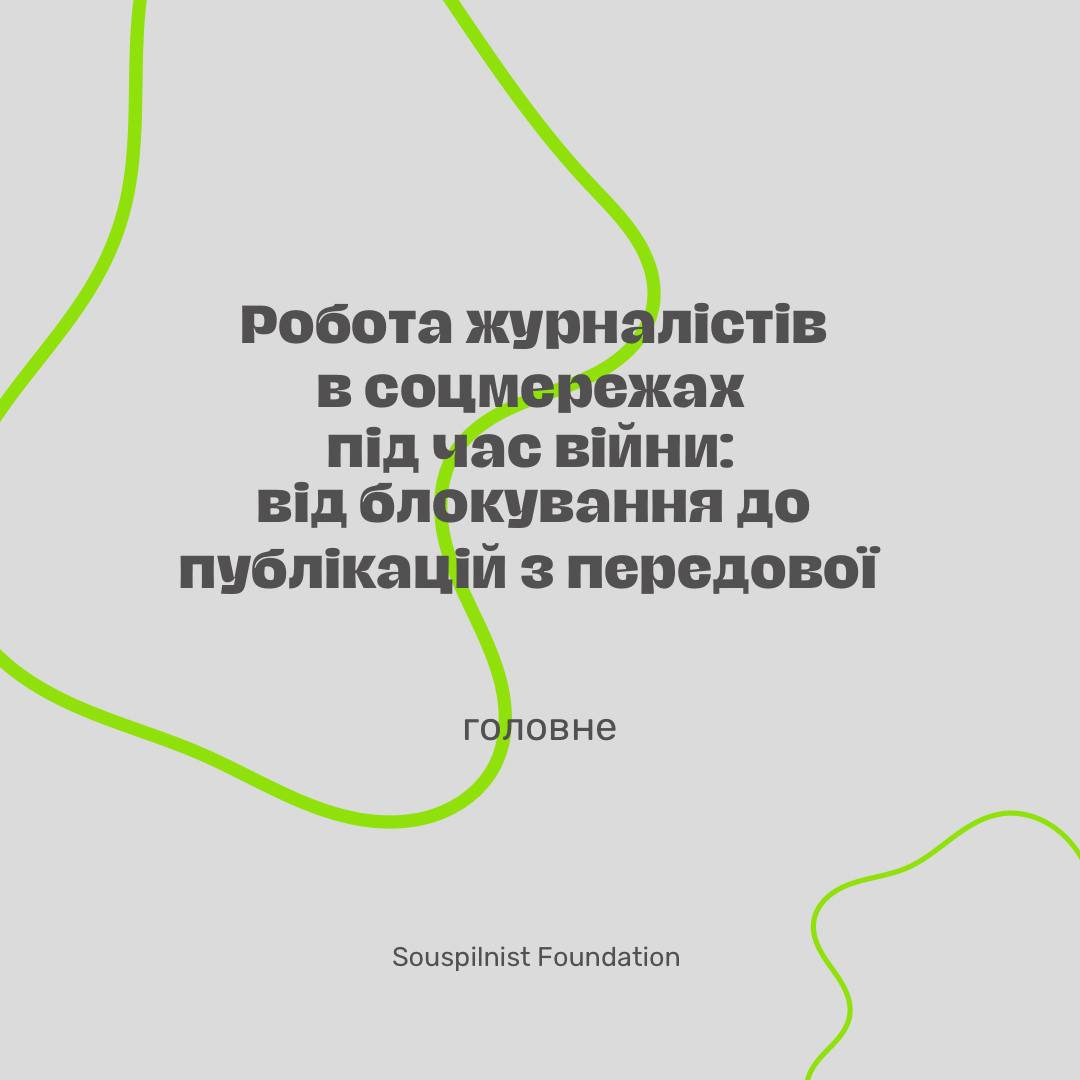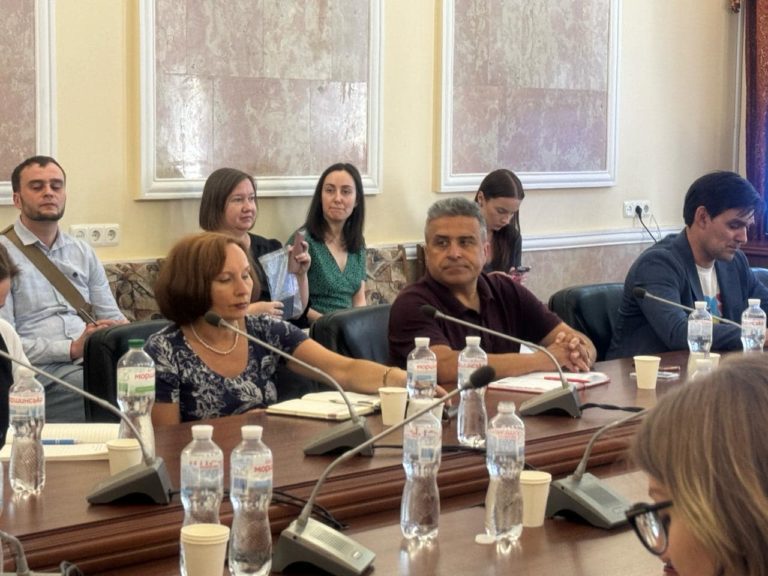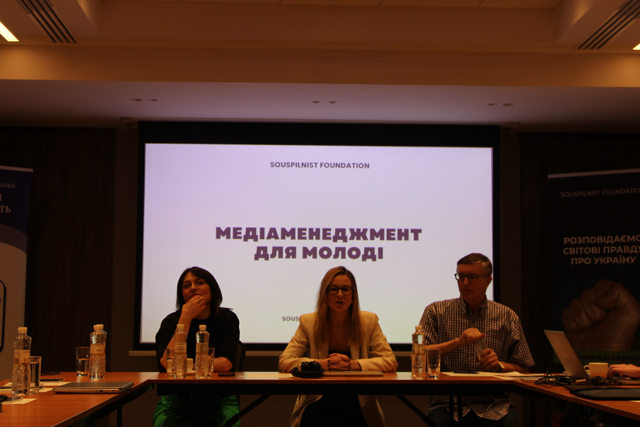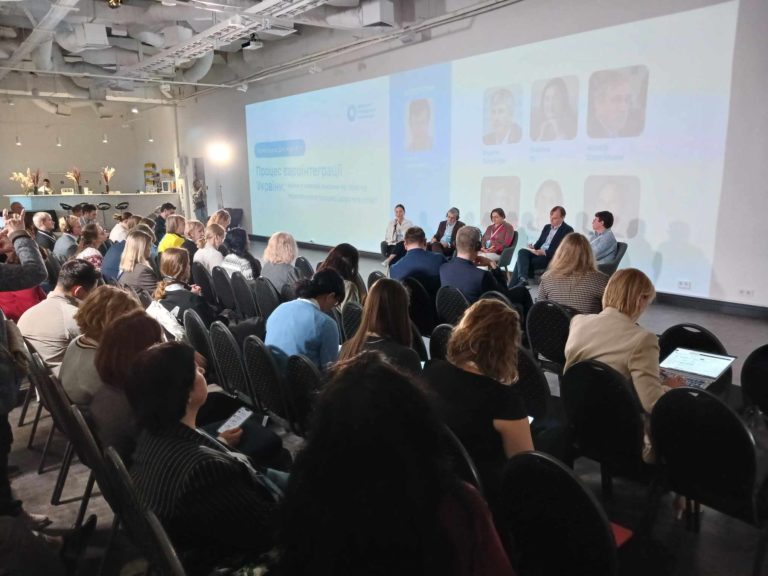Our habit of using social networks during wartime puts us in difficult situations regarding the use and spread of information. An understanding of social networks’ algorithms helps us avoid problems.
On June 30, media experts discussed how journalists can work effectively with social networks during an online meeting, “Journalists’ work with social networks during wartime: from blocking accounts to reporting from the frontlines.”
Among the speakers were Otar Dovzhenko (chairman of the Independent Media Council and editor-in-chief at Detector Media), Dmytro Tuzov (IMC member, Radio NV host, and media expert at Souspilnist Foundation), Ihor Rozkladai (media law expert at CEDEM), Tetiana Avdieyeva (lawyer at CEDEM), and Diana Dutsyk (CJE member).
Тaras Petriv, president of Souspilnist Foundation and IMC member, moderated the event.

According to Otar Dovzhenko, social media content moderation has become more critical given the increased war-related content:
For social media, news from Ukraine is provocative content. Now is a good time for social networks to review their policies.
Among the challenges are lots of content shared by the owners of drones, surveillance cameras, etc. Such information is frequently used for manipulation, which harms Ukraine’s defense.
Ihor Rozkladai spoke about Facebook Community Standards and listed four main categories the standards rest on:
- authenticity;
- privacy;
- safety;
- dignity.
He emphasized that social networks’ content moderation system is not ideal because the algorithms do not understand the context:
We must contest the decision to delete a post or block a page. Otherwise, we won’t teach algorithms to respond correctly.
The platforms’ rules are for peacetime, with no riots, rebellions, or armed conflicts. However, according to Tetiana Avdieyeva, collective complaints will be sent to social networks’ supervisory boards, which could lead to changing content moderation policies.
Social platforms prohibit graphic content. The rules have been simplified during conflicts since if a post has to do with war crimes, it becomes evidence.
The experts also discussed sharing information from high officials’ accounts. The law allows you to cite official sources of information. However, there are attempts to adapt these legal norms to social media.
Many public figures are posting unverified information. Journalists sharing news from their accounts won’t break the law. However, this won’t align with complete and objective information principles. When published, such posts are not reliable, said Tetiana Avdieyeva.
Media experts agreed that there is still insufficient support for quality media outlets competing with unscrupulous media. There is competition from bloggers who do not live up to the standards.
According to Diana Dutsyk, verifying social media pages, especially Telegram channels, is essential.
When you share a social media post, make sure you get a screenshot. It will keep you safe if the post might be edited later and become an unreliable source of information. Double-check Telegram channel names. They might look like reliable sources at first glance but spread fake news.
Another issue discussed during the meeting is that of media outlets’ dependence on social networks as platforms for disseminating information. Instead of making money, media outlets pay the platform to show their content. To reduce such connections, Otar Dovzhenko advised to:
- create closer ties with your audience so that readers/viewers specifically look for your content;
- refrain from increasing accidental audience; and
- use different channels to disseminate information.
Another piece of advice from Dmytro Tuzov: When you have to choose between promptness and shared responsibility, responsibility must come first, especially in wartime.
You can watch the recording of the discussion here
The event was organized by the Center for Democracy and Rule of Law and the Independent Media Council in collaboration with Souspilnist Foundation. We will continue to hold expert discussions to address current issues in the media sphere.


